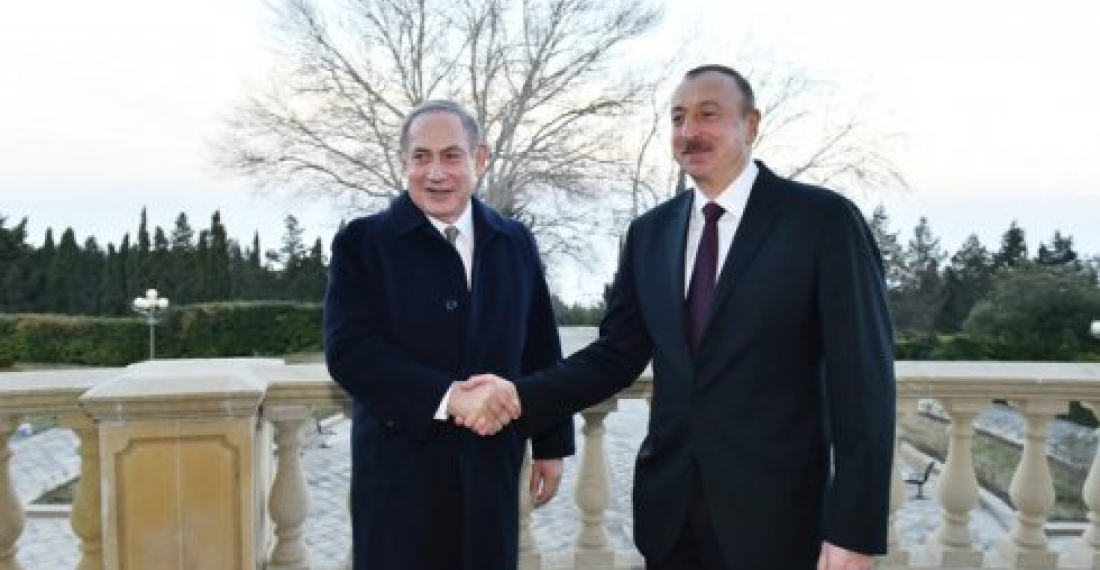За последние годы Израиль поставил Азербайджану вооружений на сумму в $5млрд., что сделала его вторым по величине поставщиком оружия в эту страну после России. Это было подтверждено президентом Азербайджана Ильхамом Алиевым во время разговора с журналистами в ходе визита в Баку премьер-министра Израиля Беньямина Нетаньяху.
Президент Ильхам Алиев сообщил журналистам, что:
"Стоимость контрактов, подписанных до сих пор азербайджанскими и израильскими компаниями в связи с приобретением оборонного оборудования, составляет около 5 миллиардов, а точнее, 4 миллиарда 850 миллионов долларов. Значительная часть этих контрактов уже реализована. Мы все еще работаем над этим и очень довольны уровнем такого сотрудничества."
Между двумя странами также ведется активное сотрудничество во многих других областях, включая энергетику. Согласно Jerusalem Post, Израиль покупает четверть всех своих поставок нефти в Азербайджане.
Визит Нетаньяху подвергли критике в Иране. Иранское информационное агентство MEHR сообщило, что в иранском городе Тебриз в пятницу состоялся марш против визита Нетаньяху в Азербайджан, с требованием от Баку отменить его.
Иранское информационное агентство Tasnim приводит слова бывшего посла Ирана Мохсена Пакайена, который заявил, что визит "противоречит обязательствам Азербайджана перед исламским сообществом".
Как сообщает агентство, "Мохсен Пакайен сказал, что Азербайджанская Республика, являясь членом исламского сообщества, должно хранить приверженность соглашениям мусульманских народов о запрете каких-либо связей с Израилем и мер, которые могут нарушить изоляцию сионистского режима."
Иранское информационное агентство Fars приводит слова Хосейна Амира Абдоллахиана, старшего советника спикера иранского парламента, который заявил, что Нетаньяху "вынашивает новые планы". "Предстоящий визит Нетаньяху в Баку следует рассматривать как новый заговор в регионе", сказал он.
Однако, президент Ильхам Алиев воспользовался возможностью в ходе визита Нетаньяху для того, чтобы подчеркнуть исторические отношения Азербайджана с еврейскими общинами и его толерантностью ко всем вероисповеданиям. Президент сказал:
"На протяжении многих веков, евреи и азербайджанцы жили в мире, дружбе и продолжают жить также здесь в Азербайджане. Еврейская община в Азербайджане является очень активной частью нашего общества, они вносят большой вклад в развитие современного Азербайджана, и тесные отношения между нашими народами являются очень важным фактором в наших двусторонних отношениях. К вашему сведению, я хотел бы сказать, что [в Азербайджане] семь синагог, и пять из них в Баку .... ".
"Отношения между евреями и азербайджанцами всегда были очень хорошими, во все времена нашей истории. Евреи жили в Азербайджане в течение многих столетий. Это их дом, они чувствуют себя как дома, и они делают много для того, чтобы укрепить нашу страну. Это было во времена царской России, когда Азербайджан входил в состав Российской Империи, это было во времена Советского Союза, и отношения между людьми такие же и в последние 25 лет независимости, все, кто живет в Азербайджане является наглядным примером мультикультурализма, взаимного уважения, и уважения к традициям друг друга, религии. Я всегда говорил, что уважение к вашей собственной религии и традициям начинается с уважения к традициям и религии соседа".
Из Баку Нетаньяху направится в Казахстан.
Источник: commonspace.eu по материалам Jerusalem Post и других информ агентств
Фото: Президент Азербайджана Алиев и премьер-министр Израиля Нетаньяху в Баку, 13 декабря 2016 (фото любезно предоставлено пресс-службой президента Азербайджана).






